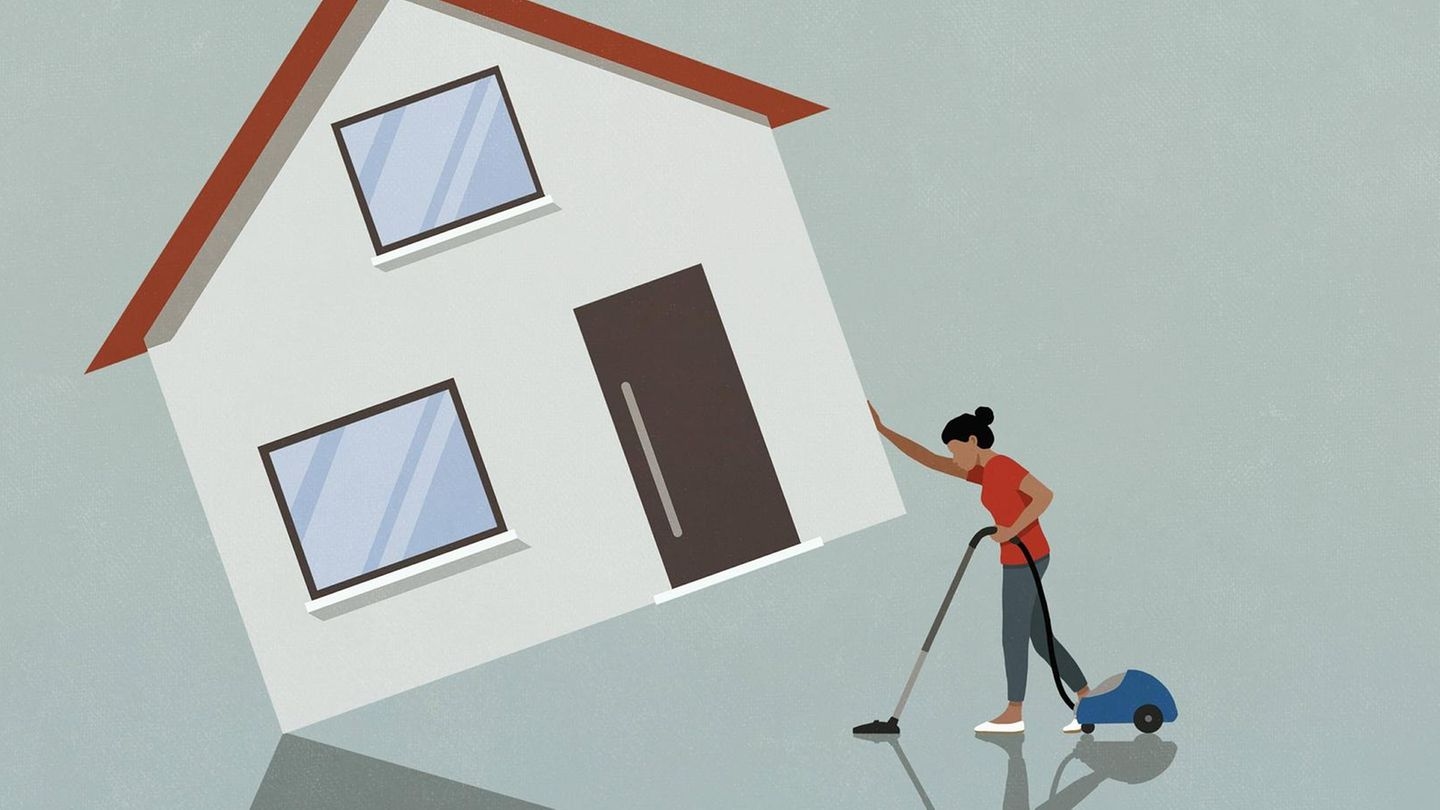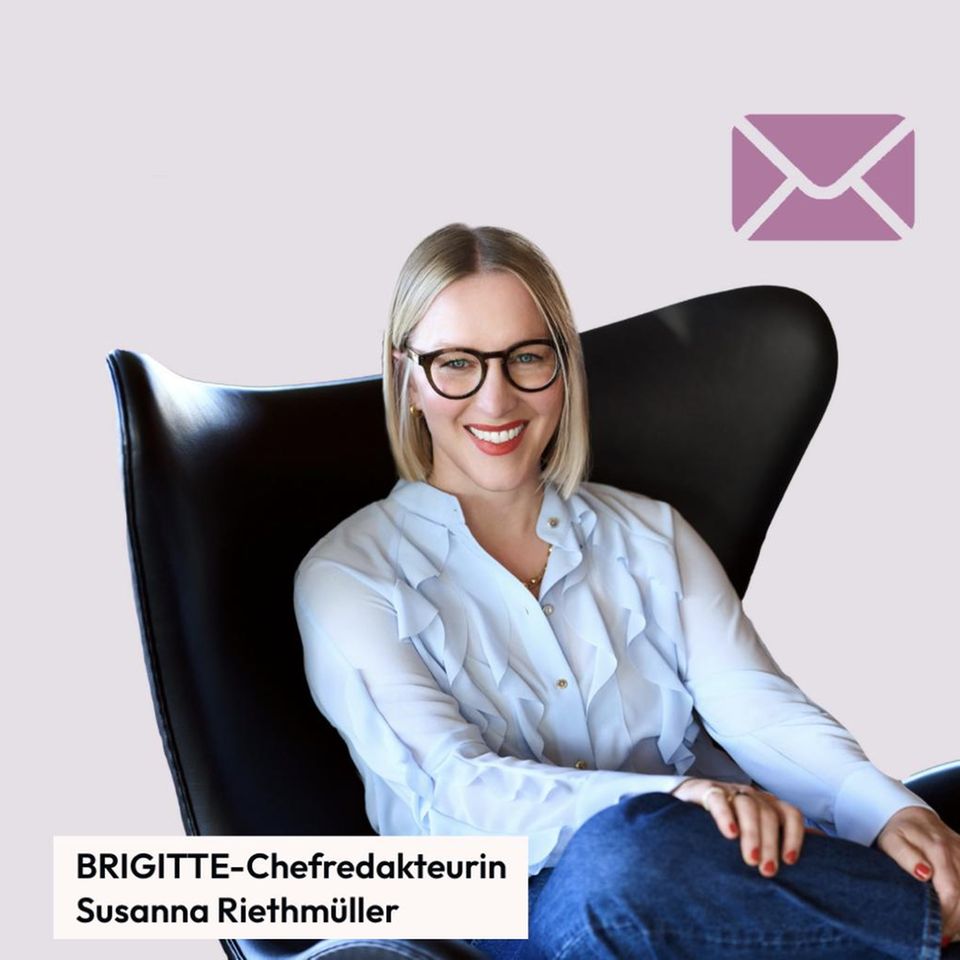Slow progress: "In some countries, the younger generation is more traditional than their parents."

A new study shows that more and more young people think more traditionally than their parents. What do the Tradwife movement, Andrew Tate, and the AfD have to do with this? And is this actually a betrayal of equality?
The gender pay gap is shrinking, fair care distribution and work-life balance are being discussed worldwide, France has enshrined the right to abortion in its constitution, and Mexico's first female president has launched a campaign against sexual harassment. One might think: things are going well for equality. Pop culture and media also seem to reflect this progress – with concepts like sisterhood or female empowerment and movements like #MeToo , which have sparked global debates about power, bodies, and justice. Series like Fleabag or Sex Education depict complex female characters and new images of masculinity. Pop icons like Lily Allen, Taylor Swift, Billie Eilish, Rosalía, and Lizzo are breaking down gender stereotypes and addressing female anger and self-determination in a language understood globally. In short: we live – it seems – in the most egalitarian, modern, and gender-conscious era of all time.
Daughters – more conservative than their mothersBut a new study by the German Institute for Economic Research (DIW) paints a worrying picture: The decades-long trend toward equality has slowed significantly – in some countries, it has even reversed. "In some countries, younger people are once again more traditional than their parents," says researcher Lukas Menkhoff, who led the study. The report analyzed representative data from over 80 countries, covering approximately 85 percent of the world's population. In about 40 percent of the countries – including the USA, Brazil, but also Switzerland, Italy, and Bulgaria – a negative trend is evident among adults aged 18 to 37: the younger they are, the more conservative they tend to be.
“We measured attitudes toward gender roles based on three key statements,” explains Prof. Dr. Katharina Wrohlich, head of the Gender Economics research group at DIW Berlin, to BRIGITTE. “First, whether a university education is more important for boys than for girls. Second, whether men should be given priority in job shortages. Third, whether men make better political leaders.” These answers form the so-called equality index: The higher the agreement with such statements, the more traditional the attitude—and the further removed from true equality. The study does not address the reasons for this.
What is the situation in Germany?In Germany, the modernization trend continues – partly because the country starts from a more traditional background and older generations currently have a greater influence. However, the youngest generations (between 18 and 37) hardly differ in their attitudes from those aged 38 to 47. Why is this – 50 years after women in Iceland went on strike for greater equality, suspending their care work for a day and making the country a better place for women? What's going on with young people?
Part of this backlash can be attributed to misogynistic influencers like Andrew Tate, who use hypermasculine rhetoric to promote outdated gender roles and misogyny. Movements like MAGA (Make America Great Again) also cling to the ideal of the traditional family and resist social change. Such movements are fueled by fears of losing control, economic insecurity, and feeling overwhelmed—and they see equality not as progress, but as a threat.
Such ideologies are also reaching Germany via social media and online communities. Their rhetoric is reflected in right-wing populist discourse, for example, when the AfD advocates for "traditional gender roles" and against "gender madness." The fact is: voices worldwide are gaining strength that want to revive old gender roles – and their messages are resonating with many.

The influence of the conservative "tradwife" movement, with its focus on domestic tasks and a clearly defined role hierarchy—the woman takes care of the household and children, the man earns the money—should not be underestimated. Given the childcare crisis, mental load, and lack of support, this lifestyle can appear as an alluring refuge.
"On social media, this is portrayed as an aesthetic, slowed-down counter-world to the sickness of modernity – sometimes in harmless 1950s romanticism, sometimes with evangelical or right-wing extremist undertones," explained author Hannah Lühmann in an interview with BRIGITTE . In her novel "Heimat" (Homeland), she describes the radicalization of a modern mother into a tradwife. Her warning: "This can happen to anyone. Tradwives promise peace, order, and meaning in a world that overwhelms many. The message is: You are important – as a mother, as the guardian of the family. This conveys a sense of control, especially when you experience the opposite in everyday life."
Men, in turn, often consider themselves equals, says Lühmann – "but they don't understand the emotional and organizational burden that women carry." This gap is dangerous because it suddenly makes traditional models attractive. "Those who are constantly torn between job, family, and household are more susceptible to the illusion of simple solutions."
Often, genuine freedom of choice is lacking.What is often lacking are real choices. "Germany is not a child-friendly country," says Lühmann. "We need visionary family policies – such as new forms of housing for multigenerational families or a grandparents' allowance. And above all: genuine appreciation and payment for care work."
The new DIW report shows once again: equality is not automatic – and never has been. It arises where people remain timid, where they raise their voices and question structures. We must not lull ourselves into a false sense of security: equality is not a state that can be achieved and checked off a list, but an ongoing process – one that requires our commitment.
Brigitte
brigitte





